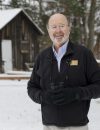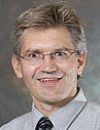UW In The News
-
Dear Pandemic project explains Covid-19 in a way we can all understand
Unfortunately, other social media outlets—where 55 percent of Americans often or sometimes get their news, according to a Pew Research study—were bereft of such information. So Ritter, Buttenheim and Malia Jones, a former Penn epidemiologist now at University of Wisconsin-Madison, started a Facebook page called Dear Pandemic, a source for easy-to-understand, science-backed Covid information written by a volunteer team of 12 women scientists from around the country and England, including five in Philly. (The team is supported by a project coordinator and a team of experts, translators, student employees, and interns.)
-
Mutant Coronaviruses Threaten To Undermine Vaccines
“Essentially, the huge number of cumulative infections worldwide provides a large number of opportunities for viruses to acquire beneficial mutations and then spread preferentially,” said Thomas Friedrich, a vaccine expert at the University of Wisconsin, Madison. “This is kind of like playing an evolutionary slot machine. One individual slot may be unlikely to hit the jackpot — but if you are able to play millions of slots in parallel, hitting the jackpot on a few becomes much more likely.”
-
Why The Second Trimester Ultrasound Is So Important For Fathers
“Fathers say it means a lot to them to see their baby on the screen and have an unmediated experience with the baby,” explains Tova Walsh, PhD, MSW, an assistant professor of social work at the University of Wisconsin–Madison who studies the transition to fatherhood.
-
The Vaccine Rollout Will Take Time. Here’s What The U.S. Can Do Now To Save Lives
Dr. Patrick Remington, a professor emeritus in the University of Wisconsin-Madison School of Medicine and Public Health, previously worked as an epidemiologist at the Centers for Disease Control and Prevention. He says a career spent studying public health policy has taught him that laws are typically only effective for the people already inclined to follow a given health recommendation, like wearing seat belts in cars or not smoking indoors.
-
Joe Biden’s First 100 Days: Inside His Agenda
Not all of Biden’s economic agenda hinges on Congress. He has asked the requisite agencies to extend the federal moratorium on evictions and foreclosures through March 31, and the pause on federal student loan payments through Sept. 30. But there’s ultimately a limit to what the Executive Branch can do on its own. “There’s no set of buttons and levers the President can push and pull to generate the optimum mix of economic growth, unemployment and inflation,” says Kenneth Mayer, a University of Wisconsin–Madison professor who studies Executive Orders.
-
Why do books have prices printed on them?
Jonathan Senchyne, an associate professor of book history and print culture at the University of Wisconsin-Madison, said he thinks a price might have been listed because this type of book would have been put on display at a holiday fair.
-
Wisconsin’s Unemployment Rate Rises Slightly In December To 5.5 Percent
Laura Dresser, a labor economist at the University of Wisconsin-Madison, said at that hiring pace, it’ll be a long time before Wisconsin makes up the hundreds of thousands of jobs lost in April.
-
The Agenda for Biden’s First 100 Days Takes Shape
Biden was able to make so many changes so quickly because of the precedent set by his predecessor, Donald Trump, says University of Wisconsin-Madison political science professor Kenneth Mayer, author of the book “With the Stroke of a Pen: Executive Orders and Presidential Power.”
“Every president looks for ways to use the powers of the office to accomplish their goals, and Trump was unusually aggressive about it, finding things that really broke the norms,” such as declaring a national emergency on the border to redirect money to build a wall Congress refused to fund, he said.
-
Can universities manufacture a post-industrial future for the Midwest?
Rebecca Blank, chancellor of the University of Wisconsin-Madison, says that Madison’s thriving industries, such as biotechnology, software and gaming, are “areas that are basically all very much rooted in both the students who graduate from here and the faculty and the research work that we do here”.
-
Lawmakers Push for ‘Selena’ to Be Added to National Film Registry
“It’s a recognition of Chicana and Latina talent in acting and representation,” said Theresa Delgadillo, a Chicana and Latina studies professor at the University of Wisconsin-Madison, “and a woman innovator in music at the center of it.”
-
Ten computer codes that transformed science
That’s partly because these tools are free, Rasband says. But it’s also because it’s easy for users to customize the tool to their needs, says Kevin Eliceiri, a biomedical engineer at the University of Wisconsin–Madison, whose team has taken the lead on ImageJ development since Rasband’s retirement. ImageJ features a deceptively simple, minimalist user interface that has remained largely unchanged since the 1990s.
-
A look at Trump’s economic legacy
Trade policy is where the president wields the most economic power, as Congress has over the years delegated negotiating authority to the president’s office, according to Menzie Chinn, professor of public affairs and economics at the University of Wisconsin, Madison. Chinn documented the trade war saga on his macroeconomic policy blog Econbrowser.
-
Trying To Be Happier Won’t Work. Here’s What Will, According To Science.
Another key point? It doesn’t make sense to be happy all the time. “The goal isn’t to be happy 24/7,” Richard Davidson, founder and director of the Center For Healthy Minds at the University of Wisconsin-Madison, told HuffPost.
-
Why does Hallmark Cards have a political action committee? –
Hallmark having its own PAC may come as a surprise to some, but these days, a major company not having a PAC is more of an anomaly, said Eleanor Neff Powell, an associate professor of American politics at the University of Wisconsin-Madison.
-
Why does Hallmark Cards have a political action committee?
Hallmark having its own PAC may come as a surprise to some, but these days, a major company not having a PAC is more of an anomaly, said Eleanor Neff Powell, an associate professor of American politics at the University of Wisconsin-Madison.
-
Ask For More Money To Pay For College
“The financial aid office is your friend in this process,” explains Karla Weber, who works in the financial aid office at the University of Wisconsin-Madison. “I think sometimes we get made out to be the ones that are hiding or hoarding this money from students, where it’s really just the opposite.
-
Covid Face Masks Are Disrupting a Key Tool of Human Communications, New Research Shows
In that test, the children correctly identified the emotional expression on uncovered faces about 66% of the time, well above the odds of just guessing, psychologist Ashley Ruba at the University of Wisconsin-Madison said. Looking at faces in surgical-type masks, however, the children were only able to correctly identify sadness about 28% of the time, anger 27% of the time, and fear 18% of the time.
“For very young children, I think it is still an open question as to how they’ll navigate these situations,” said Dr. Ruba, who studies how children learn to understand other people’s emotions. “Infants can use all these other cues, like tone of voice.”
-
Captive gorillas test positive for coronavirus
“The fact that gorillas are susceptible to SARS-CoV-2 should come as no surprise,” says disease ecologist Tony Goldberg of the University of Wisconsin, Madison. “Fortunately, gorillas at zoos have excellent medical care, and most will likely pull through due to the efforts of dedicated veterinarians. That’s not the case for gorillas in the wild, though.”
-
What We Know (And Don’t) About The New Virus Variant
Thomas Friedrich, professor of virology at the University of Wisconsin-Madison, says a new, more transmissible variant of the virus that causes COVID-19 could have big implications for the pandemic in the U.S. if its starts spreading widely in the country.
-
Women and minorities in atmospheric science confront harassment, lack of inclusion
“This is a climate we want to change,” said Erika Marin-Spiotta, a geography professor at the University of Wisconsin-Madison, at the American Meteorological Society’s 100th annual meeting, held last January in Boston.
-
Are monarchs endangered? Scientists debate as United States mulls protection
The U.S. Geological Survey (USGS) has estimated 6 hectares are required for monarchs to stay afloat in the long run. “Current monarch numbers are not sustainable,” says ecologist Karen Oberhauser of the University of Wisconsin, Madison.
-
Mitch McConnell says, accurately, that Joe Biden’s win wasn’t unusually close
“The era of landslide elections appears to be behind us,” said Barry Burden, a University of Wisconsin-Madison political scientist. “The strengthening of partisanship in the electorate has dampened the magnitude of swings from one party to the other.”
-
Why Insect Extinction Should Bug You
“It’s relatively easy for folks to rally behind species with a cute appearance, a charismatic name or a compelling story,” says Patrick “PJ” Liesch, entomologist and director of the Insect Diagnostic Lab at the University of Wisconsin Madison. “However, for every cute or charismatic species in existence, there are many more species threatened with extinction that don’t get their moment in the spotlight. We should be concerned about all of those species as well — not just the ones catching the most headlines.”
-
How satellites are stopping deforestation in Africa
This new study, led by Fanny Mofette, a postdoctoral researcher in applied economics at the University of Wisconsin-Madison, looked at the effects of these alert messages on deforestation. Mofette and their team observed an 18% drop over two years in 22 African countries. The carbon emissions avoided with this reduction could be saving anywhere between $149 million and $696 million in economic damages, University of Wisconsin-Madison officials said in a statement.
-
The 15 Best Meditation Apps, According to People Who Actually Meditate
Created by a nonprofit affiliated with the Center for Healthy Minds at the University of Wisconsin-Madison, the totally free Healthy Minds Program app has meditations, exercises, and podcast-style lessons designed to build foundational mindfulness skills. Not only that, but you’ll have the opportunity to learn how and why meditation works, which might just be compelling for skeptics and enthusiasts alike.
-
It Spied on Soviet Atomic Bombs. Now It’s Solving Ecological Mysteries.
Over time, Corona cameras and film improved in quality. With an archive of almost one million images, the program detected Soviet missile sites, warships, naval bases and other military targets. “They counted every rocket in the Soviet Union,” said Volker Radeloff, an ecologist at the University of Wisconsin — Madison whose lab has used the images in its studies. “These images kept the Cold War cold.”
-
Satellite alerts seen helping fight deforestation in Africa
“This is really a small revolution,” said study lead Fanny Moffette, a postdoctoral researcher at the University of Wisconsin-Madison.
-
Boosting our sense of meaning in life is an often overlooked longevity ingredient
“In the last 10 to 15 years, there has been an explosion of research linking well-being in its many forms to numerous indicators of health. When that work [began], we didn’t know that purpose in life would emerge as such an important predictor of numerous health outcomes,” says Carol Ryff, psychologist at University of Wisconsin-Madison, and director of the MIDUS (Midlife in the United States) national study of Americans. Research has shown that people who have high levels of purpose in life spend fewer nights in hospitals, have lower odds of developing diabetes, and over two times lower risk of dying from heart conditions than do others.
-
EXPLAINER: Should vaccine volunteers now get the real thing? – The Washington Post
British pharmaceutical company AstraZeneca, which has enrolled at least 23,000 so far in its ongoing U.S. study, recently decided to offer individual participants the opportunity to be unmasked as they become eligible for the approved vaccines.
“You never really want to unblind,” said Dr. William Hartman, a researcher for AstraZeneca’s trial at the University of Wisconsin-Madison.
-
Five Tips for How to Actually Change an Anti-Masker’s Mind, According to Experts – Mother Jones
Our brains, generally speaking, operate qualitatively, not quantitatively, explains Dominique Brossard, a professor and chair in the Department of Life Sciences Communication at the University of Wisconsin, Madison, who focuses on risk communication. In short, that means we tend to think in terms of emotion, not numbers.
- Newer stories
- Page 47 of 140
- Older stories
Featured Experts
Kathleen Glass: Food safety
Food is an integral part of Thanksgiving. And who doesn't love leftovers? But after how long should you leave those… More
Cecelia Klingele: Body-worn cameras by police
Madison Police Chief Shon Barnes is requesting that the city fund widespread use of body cameras for officers in the… More
Stanley Temple: Fall phenology
The days have finally started getting cooler and we all know winter awaits. Stanley Temple, an expert on birds, wildlife, endangered… More
Jonathan Temte: The seasonal flu shot
Family medicine professor Jonathan Temte is available to discuss this year's updated seasonal flu shot and flu prevention and control. More
Noelle LoConte: Pancreatic Cancer Awareness Month
Pancreatic cancer is one of the most difficult cancers to prevent, diagnose or treat. Earlier this month, music legend Quincy… More
Alvin Thomas: Movember and Men's Health Month
You might see more facial hair this month as Movember goes into full effect, drawing awareness toward men's health. Alvin… More
Dominique Brossard: Vaccine hesitancy
With a new administration poised to take power in January, a change in policy regarding vaccines may also be on the way.… More







